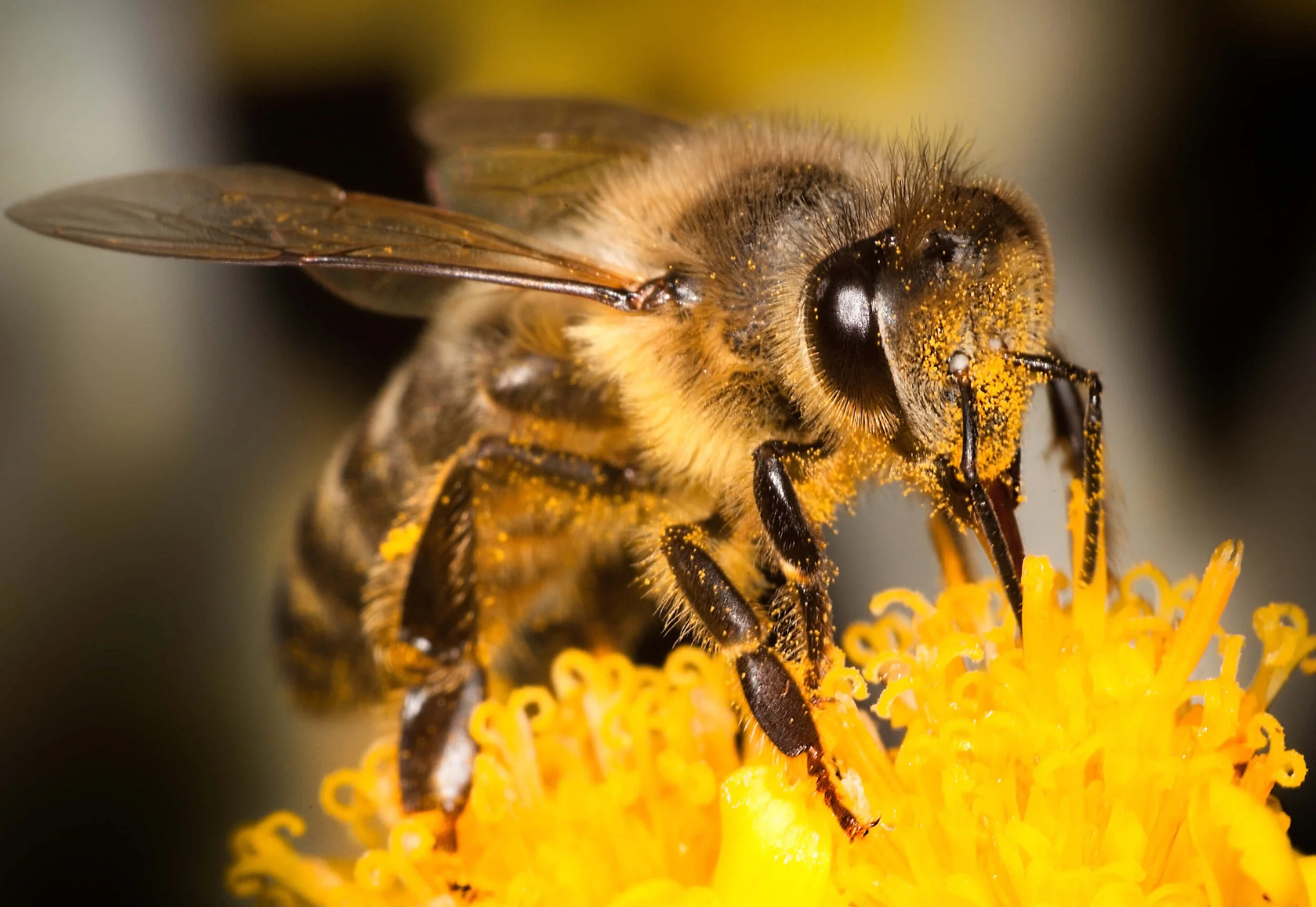
Bee Control
Responsible Bee Control
All Bees are vital for the planet and our existence. however they’re in trouble with numbers in real decline due to a number of factors including habitat loss and impacts of pesticide use. That is why when it comes to Bee control or removal of a Bees nest, Healthguard takes the survival of Bees seriously and will only exterminate them as the very last resort, after all, we keep Bees ourselves. We will always look for the pest control solution that is mutually beneficial for our customers and the Bees.
SAVE THE BEES….
We recommend you contact the Tree Bee Society who specialise in safely removing and relocating bees. The BBKA website has further info to help you identify the type of Bee and a map displaying many local Bee Keepers who will be able to remove the swarm safely. Bees are very responsive to changes in their habitat - for every 10% increase in bee-friendly habitats, bee numbers increases by over a third!
Honey Bees
Honey Bees (above) measure about 15mm long, they are mustard yellow and brown. They have oval shaped bodies that are covered with lots of hairs to which pollen adheres. They swarm in May, so thats when most swarms are reported, they can be safely collected by Beekeepers (see links above for local directories).
Solitary Bees
This group of Bees includes Mortar Bees. They live alone and may excavate holes in old lime mortar in order to lay an egg and feed their larvae. The best thing to do is let them be during the Summer and then re-point with modern mortar in the late autumn. They are not aggressive and should not be considered a pest.
Bumblebees
Very gentle, if a little intimidating due to their size, they do not attack humans unless their nest is being tampered with. Bumblebee nests can sometimes be moved but generally, the best thing to do is leave them alone if possible. The nest will only be active for one season and will not be used again.
More about Bee’s
A lovely video made by our Twickenham and Thames Valley Beekeepers Association to educate people about these incredible critters:
Please call us for free, impartial advice about Bees. Responsible pest control means supporting those organisms that are not pests and contributing to the British countryside.
We help people Control Bees across:
Derbyshire: Bakewell, Castleton, Chesterfield, Derby, Hope Valley, Matlock Lincolnshire & North East Lincolnshire: Ancaster, Boston, Bourne, Brigg, Gainsborough, Grantham, Grimsby, Horncastle, Kings Lynn, Lincoln, Louth, Mablethorpe, Market Deeping, Skegness, Sleaford, Spalding, Stamford, Swineshead, West Deeping, Wisbech, Cleethorpes, Grimsby, Scunthorpe. Nottinghamshire: Mansfield, Newark, Nottingham, Retford, Worksop. South, West & North Yorkshire: Barnsley, Doncaster, Leeds, Rotherham, Sheffield, Wakefield, Harrogate, Whitby, York. Cambridgeshire: Cambridge, Holbeach, Market Deeping, Peterborough, Yaxley. Rutland & Leicestershire: Rutland, Leicester, Loughborough, Market Harborough, Melton Mowbray



